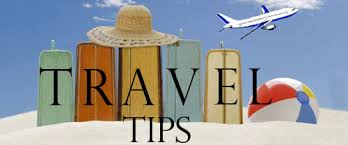Travelling soon? Take note of these tips and enjoy your travel!
Remember the Time
Understanding time zones isn’t all that’s important here — although you’ll need to remember that too, of course. However, it’s also important to understand the way time can mean different things in different cultures.
If someone in Japan says a meeting starts at 9 a.m., it starts at 9 a.m. In other countries, punctuality isn’t as prized, so don’t take offense if not everyone shows up at the agreed upon time.
Praise, Don’t Criticize, the Food
It’s like what your mom always said: If you don’t have anything nice to say, don’t say anything at all. If their food seems strange, be polite.
It’s a good idea to brush up on the cuisine and dining customs before you go.
Be Careful With Social Media
This is an extension of the previous two tips. You don’t want to say anything bad about your hosts, and you don’t want to post anything negative either.
And you might be in a country where Facebook and Twitter are banned, so show some respect and wait until you’re home to post about your trip.
Be Curious
If your hosts start to tell you about the place you’re visiting, pay attention. This is one of the travel etiquette tips that’s simply good manners, and good business. The more you know about your host country, the more comfortable you’ll be conversing with people later on in your visit.
Small talk can lead to bigger things.
Keep the Conversation Light
At the same time, remember that some things might be off limits in certain countries.
In England, for example, it might be considered inappropriate to talk about someone’s life outside work. Keep things light: weather, food, current events.
Dress Up
While “business casual” might mean different things in different countries, it’s better to err on the side of caution and dress in a way that’s conservative yet comfortable.
It’s like your teachers used to say on class trips: You’re representing the place you come from.
Watch Your Hands
Handshakes aren’t the only things that vary from place to place. Hand gestures are the same way.
For example: Giving someone a “thumbs up” in Latin America is considered rude. It means “up yours,” not “good job.”



